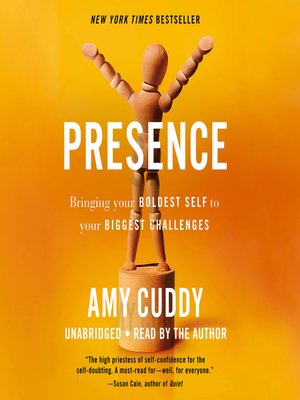


Every achievement led me to feel more afraid, while even the smallest failure confirmed my belief that I didn’t belong.

But for years afterward I was haunted by impostor fears. I fought my way back-very slowly-and eventually finished college and persuaded someone to take me on as a grad student at Princeton. But I had lost my ability to think-a pretty important part of me-and I felt utterly powerless. Anything else can go and still you feel some of your old power. Nothing feels worse than losing part of your core identity. After my brain injury I kept trying to return to school, only to drop out because I couldn’t process information. In my 2012 TED talk, I shared a story about my experiences as an impostor. If you don’t tell anyone about those feelings, then people are less likely to think, “Hmm… maybe she really doesn’t deserve to be here.” No need to give them any ideas, right? That’s how impostorism gets such a good grip-it pays you hush money. And I didn’t just experience it, I inhabited it. I don’t just study impostorism, I experienced it. Presence and impostorism are opposing sides of the same coin-and we are the coin.

If even you don’t believe you should be here, how will you convince anybody else? Impostorism steals our power and suffocates our presence. We’re scattered-worrying that we underprepared, obsessing about what we should be doing, mentally reviewing what we said five seconds earlier, fretting about what people think of us and what that will mean for us tomorrow. It makes us fixate on how we think others are judging us (in these fixations, we’re usually wrong), then fixate some more on how those judgments might poison our interactions. Impostorism causes us to overthink and second-guess. Psychologists refer to it as impostor syndrome, the impostor phenomenon, impostor fears, and impostorism. It’s not simple stage fright or performance anxiety rather, it’s the deep and sometimes paralyzing belief that we have been given something we didn’t earn and don’t deserve and that at some point we’ll be exposed. Most of us have experienced it, at least to some degree. The general feeling that we don’t belong-that we’ve fooled people into thinking we’re more competent and talented than we actually are-is not so unusual.


 0 kommentar(er)
0 kommentar(er)
